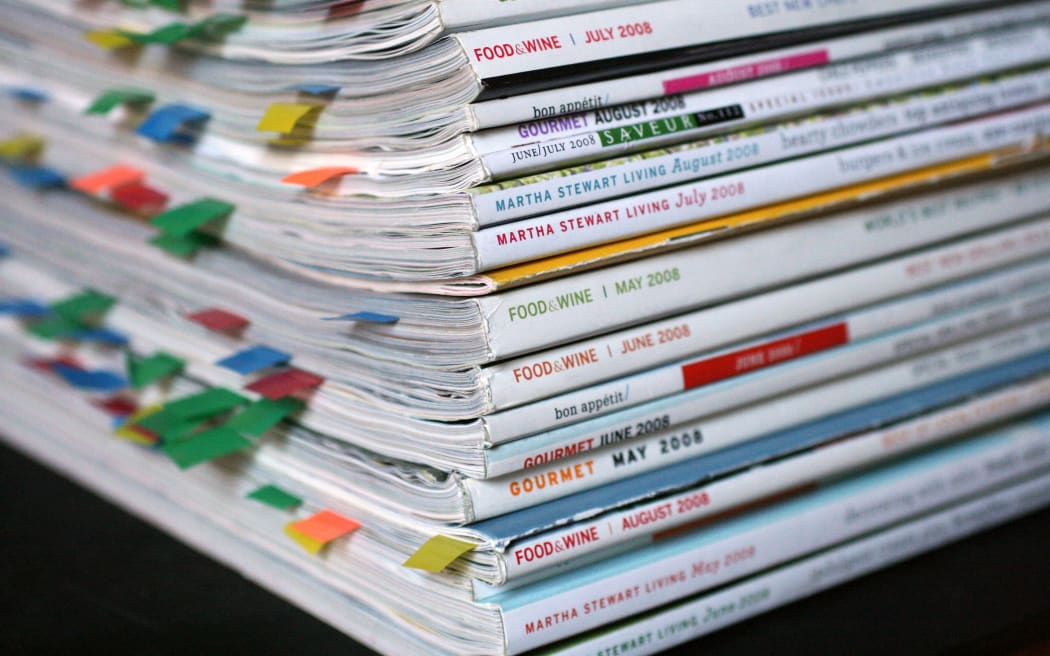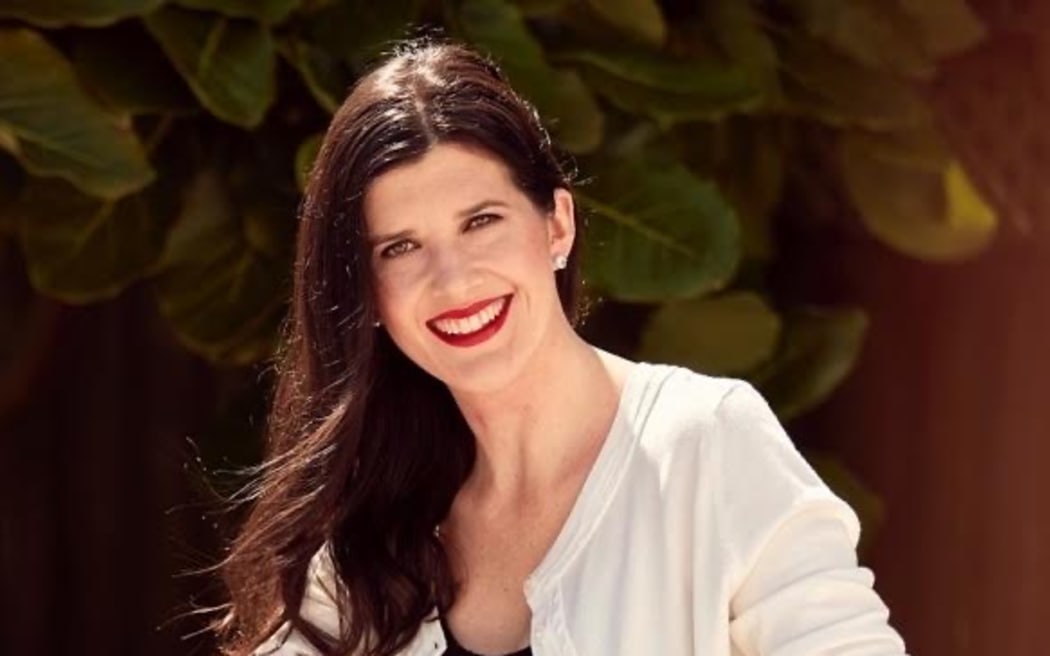The last magazine shops are shutting - they're going the way of video and record stores. But like vinyl, will there be a renaissance?

Photo: Flickr / thebittenword.com
There's nothing like leafing through the pages of a gorgeous, glossy magazine.
But those days could soon be over, judging by plummeting readership figures and mass closures.
Five years ago, the publishing industry sold around 16 million magazines a year in New Zealand. Now it's down nearly 40 percent, to 10 million.
Nicholas Burrowes from the Magazine Publishers Association remains upbeat about the situation, but that's his job.
He denies his industry is facing a cultural death.
"I think it's wrong, because I think anybody who's tried to predict what's happening in media in the last 10 to 20 to 30 years has never got it right. A lot of magazines are still being sold. It's not like, we've hit some bottom - we have a future."

Magazine Publishers Association chair Nicholas Burrowes Photo: RNZ/Supplied
In spite of that optimism, last year the Magazine Publishers Association had to cancel its annual conference, posting on its website that "the board acknowledges the tough times, the cost to publishers of airfares, accommodation, taking key staff away from the business for at least a day is difficult to justify".
Most would agree there's no comparison between leafing through a publication with high production values and poking your finger at a screen.
Beautifully produced medium format photographs printed on quality paper, or those same pictures turned into pixels? There's no contest.
However there's one commercial advantage those publications just can't beat. Although the equivalent content on the web might be fuzzy or colourless - it's largely free.
Just like "video killed the radio star", as the old Buggles song would have it - the internet has been quietly gutting print magazines.
"There's nothing like holding a good magazine in your hands and opening it up and seeing a great photograph, or a great article by somebody that you really want to read about," says Jim Wilson.
Wilson is an avid devourer of mags. A gold-plated connoisseur. He estimates he's bought and read tens of thousands of titles.
"I get a lot of poetry magazines because I'm interested in poetry. I get a lot of Volkswagen magazines because I'm interested in Volkswagens. And I also get some political-type magazines like Prospect, out of the UK."
Wilson, who used to run an arts magazine himself, subscribes to the New York Review of Books, Harpers, the Atlantic and the London magazine - which has been going since 1732.
Its pre-industrial founders could scarcely have conceived of the idea that the same information in all of their editions, all those ideas and pictures, cultural observations and withering commentaries could be contained in a rectangle not much bigger than a snuff box.
Even back in 2004 when Alice O'Connell took over the reins of Creme magazine for girls - she later went on to edit the New Zealand Woman's Weekly - it was hard to see the digital threat.

Former Creme editor Alice O'Connell Photo: RNZ/Supplied
"It seemed like things were only going to go up, back then. The internet wasn't around too much. Magazines were such this safe space."
Not for long.
The Detail has also talked to the former editor of one of New Zealand's better-regarded magazines, who didn't want to be named. "It's hard to see many bright spots, especially for the serious magazines. It's very had to be optimistic about the industry." they said.
We put that to industry advocate, Nicholas Burrowes.
"I think it's probably a fair representation, but, I don't know if it's an entire representation. I mean, one editor from one magazine is probably not speaking for the entire industry. I think it is definitely a difficult time."
Alice O'Connell got out of magazines to start up an online site for women called Capsule.
"I really feel for everyone who's still working them," says O'Connell. " It is such a hard job because no matter how many people are reading it, you're still having to make that same product, there's still the same amount of work going into it. But over the years it's just meant that there's less and less resource to pull these together."
And also, fewer places to buy them.
Mainly Magazines and Lotto in New Plymouth is the latest retail outlet to go, shutting up shop last month.
Les Marshall told RNZ that he used to stock around 1,200 titles but says interest in mags has waned.
"Things changed quite drastically after Covid and magazine sales, card sales have been trending downwards ever since."
The pandemic cut a bit of a swathe through the New Zealand magazine industry. Former editors called it "an apocalypse".
In April 2020 German publisher Bauer, which owned iconic titles such as The Listener, New Zealand Woman's Weekly, Woman's Day, North & South, Metro, Fashion Quarterly and Next, announced it would shut down its New Zealand operations and make all staff redundant, blaming the economic impact of the pandemic for its decision.
After much gnashing of teeth and public eulogising the industry staged something of a surprise comeback.
Metro and North & South were acquired by independent investors.
Are Media from Australia bought the Listener and four other mastheads - making it the biggest player in NZ publishing.
The company didn't respond to two email requests for an interview with The Detail about the future of print magazines.
An industry insider told us that there were few people outside the Are Media stable making any money.
Print-lovers, hoping for the best, point to a couple of cultural trends which might help save glossies.

Magazine aficionado Jim Wilson Photo: RNZ/Supplied
Firstly digital fatigue. A turning away from social media may just mean a turn towards the likes of magazines.
"A lot of us are going back to things like email newsletters," says O'Connell. "It's surprising how that's taken off. Things like sub stack, where we used to send emails to our friends and family to tell them what we were up to. And then we went away and went on social media and then we learnt that wasn't the best way of doing things."
And then there's the phenomenon of Gen Z's (re)discovering redundant formats - because they're quirky and cool.
Look at vinyl - it's making a rampaging comeback to the point where plans for old record processing plants are being dusted off.
"Oh, I'd love to think so," says Wilson. "I love vinyl. Just having the vinyl in your hands that really means something. So that's a parallel."
But there's no sign of the pendulum swinging yet.
And if that is the sound of the death knell for the printed magazine, what do we actually lose?
Something substantial, claims Wilson: "Because they give voice, in a very real way, to a lot of Kiwis who probably wouldn't be heard. The internet is just jammed with everybody having an opinion on everything. But I think, print is more substantial."
"I think magazines and other news sources, they're a representation of the national psyche. And I think that once they start, if they start closing in any kind of rapid succession, what are we going to be? Just like a filter pipe for Facebook, crap news that comes out of other countries into New Zealand."
Check out how to listen to and follow The Detail here.
You can also stay up-to-date by liking us on Facebook or following us on Twitter.

